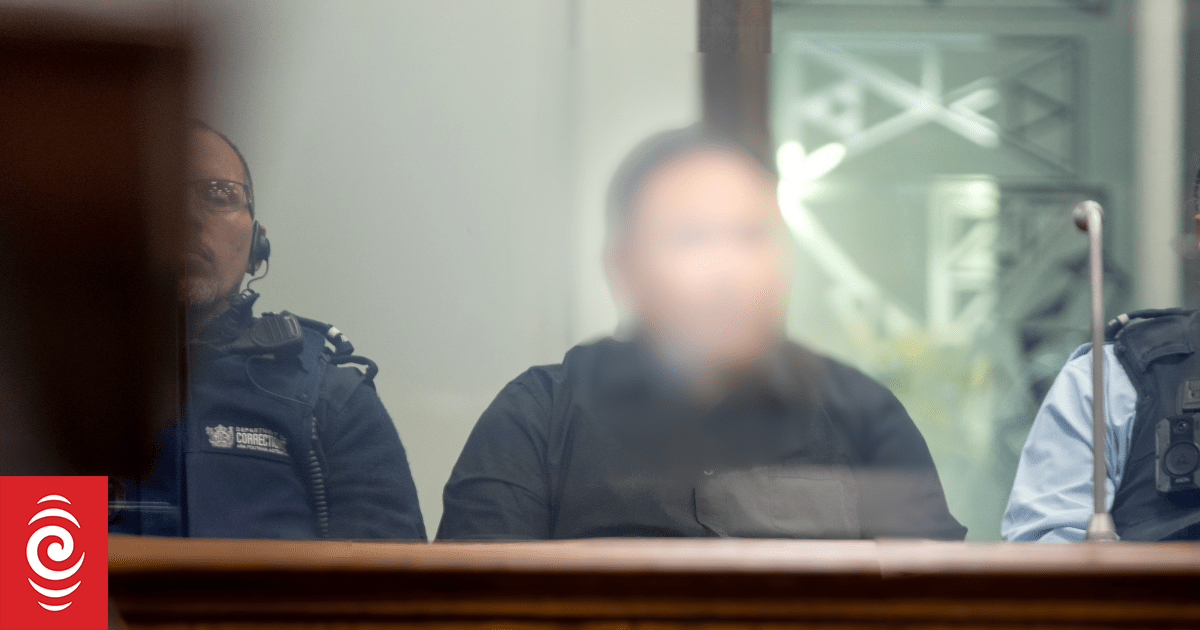Photo: RNZ / Mark Papalii
The man accused of murdering five people by setting Wellington’s Loafers Lodge hostel alight started the blaze because he did not want to live there, a Crown lawyer has argued.
The 50-year-old man, who has name suppression, is on trial in the High Court at Wellington for the next five weeks.
He’s charged with five counts of murder and two of arson following the blaze at the Newtown boarding house on 16 May, 2023.
Michael Wahrlich, Melvin Parun, Peter O’Sullivan, Kenneth Barnard and Liam Hockings were killed.
The defendant stood in the dock with his hands clasped, staring straight ahead as he said “not guilty” when each of the charges was read out.
His lawyer Louise Sziranyi has indicated a defence of insanity would be relied on during the trial.
Louise Sziranyi.
Photo: RNZ / Mark Papalii
In her opening address, Crown lawyer Stephanie Bishop told the jury she understood it was not disputed that the defendant lit two fires that evening – the second of which was fatal.
“Given that there is no dispute, as it’s understood, as to who lit the fires, the key question for you, in respect of these charges of murder, is whether [the defendant] consciously appreciated that by lighting the fire, that someone could die as a result of that fire, even if he did not want that to happen.”
The man knew the potential consequences of his actions, Bishop said.
“The Crown says that given the purposeful and clear actions of [the defendant] in lighting those two fires in, a crowded building where people were sleeping, you will have no trouble finding [the defendant] lit the fires intentionally and knew that danger to life could well ensue.”
To establish the defence of insanity, the defendant must prove that he was insane – or had “a disease of the mind” – that made him incapable of knowing what he was doing or knowing that his actions were morally wrong, Bishop said.
That would require a careful analysis of his mental state at the time, she said.
“I don’t want to say too much about this at this stage, and it’s important that I don’t, except to say that the Crown is prepared to call evidence to rebut the defence of insanity.”
How the fire played out, according to the Crown
Bishop laid out the “chaos” emergency services were faced with when they arrived about 12:30am: black smoke billowing from the building, reports of people trapped and distressed residents spilling out on to the street.
She said the fatal fire – and another, earlier in the evening – were deliberately lit by the defendant.
“It seems that [the defendant] didn’t like living at Loafers Lodge.
“After being there for a week, he wanted to live somewhere else. To achieve that, the Crown says that [the defendant] decided to light the fires at the building.”
Bishop said the defendant had arrived in Wellington on 4 May and requested accommodation from the Ministry of Social Development.
He was denied accommodation by Wellington City Mission, and was placed at Loafers Lodge, where he moved to on 8 May, she said.
During the trial the jury would be shown CCTV footage of his time at the hostel, which would include him lighting two fires on 15 and 16 May, Bishop said.
The first fire was lit under a couch in the common lounge area on the third floor, at about 10.30pm on 15 May, she said.
He had tried to set the couches alight multiple times before the flames eventually took hold and he left the building, Bishop said.
The fire was discovered and put out by other residents, one of whom silenced the building’s alarm system.
The defendant returned 90 minutes later, put cushions and a blanket inside a third-floor cupboard, set fire to them, and closed the cupboard, she said.
The footage showed him walking through the “intensifying” smoke and leaving the building once again, Bishop said.
“[The defendant] did not attempt to alert anyone to the fire, and nor did he call emergency services.
“Given the time of the morning, just after midnight, many residents were asleep in their rooms… the fire alarm sounders had been silenced because of that first fire.”
That meant many residents were unaware of the danger until the smoke entered their rooms, Bishop said.
Crown lawyers told the court they would call about 100 witnesses during the trial.
Sign up for Ngā Pitopito Kōrero, a daily newsletter curated by our editors and delivered straight to your inbox every weekday.

